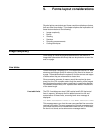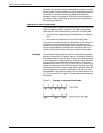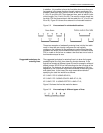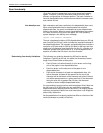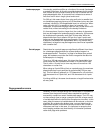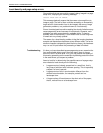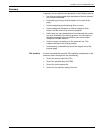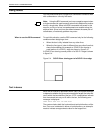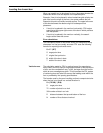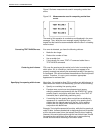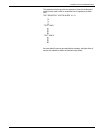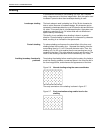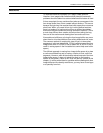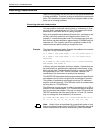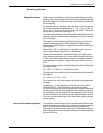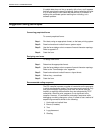
FORMS LAYOUT CONSIDERATIONS
XEROX DOCUPRINT 96/DOCUPRINT 96MX LPS FORMS CREATION GUIDE 5-9
Locating the closest box
When you specify text to be placed in a box, the system locates the
closest box within a ten-dot square of the specified point.
Example: If text is to be placed in a box located two grid units by two
grid units from the origin of the form, the system selects the box
closest to this point and within ten dots square. The upper left corner
of this box becomes the relative origin for subsequent text
placement.
• If text is to be placed in the next box horizontally, FDL begins
searching at the upper right corner of the box in which previous
text was placed.
• If text is to be placed in the next box vertically, the search
begins at the lower left corner.
Error calculations
The calculations made for horizontal errors (for example too many
characters in a line) are usually accurate. FDL uses the following
formula for reporting horizontal errors:
S = P * (B/T)
S target point size
P original font point size
B width of the box in dots
T width of the text in dots
Vertical errors The calculation made by FDL for vertical errors (for example too
many lines in the box) is only a rough approximation of the actual size
of text, and the computation may, in fact, be larger than the font for
which an error message was given. This is because the FDL system
of reckoning does not take into account the leading used within the
font or provided by line spacing specifications.
The formula used by the error-handling routine to compute text size
when the box is too small in a vertical direction is:
S = (72/300) * (D/N)
S target point size
72 number of points in an inch
300 number of dots in an inch
D distance between the top and bottom of the box
N number of lines that are involved



